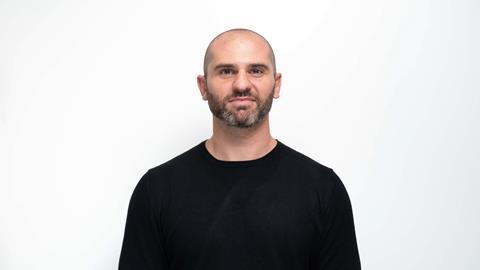Head of blockchain and digital assets and technology disputes, London
My path to law was inspired by experience. As with most lawyers, studying English and history as an undergraduate set me up to appreciate constructing arguments, so this training was at its core. Plus, and entirely separately, my dad went through a divorce when I was younger and seeing the influence respective legal teams had on outcomes was astounding. Separately again, I worked at a record label (Anjunabeats) for a short stint and the legal element was always the most interesting.
My journey to blockchain and digital assets started with an inherent focus on intellectual property law and technology. With law school friend Anand Pandya, we set up legal news platform IPHarbour, writing about media, data, soft intellectual property, and technology disputes and cases. I was learning about blockchain, machine learning, cloud computing and artificial intelligence which was where intellectual property and technology broadly met at the time. In 2019, I was given the opportunity to work on a unique case, with the firm asking if anyone knew anything about blockchain and bitcoin. I volunteered.
The case was AA v Persons Unknown, Re: Bitcoin. Counsel Darragh Connell and I were in court just before Christmas that year applying for a proprietary injunction over bitcoin paid by an insurer following a ransomware attack on a Canadian hospital. The UK Jurisdiction Taskforce had just published its legal statement on crypto-assets and smart contracts, concluding crypto-assets ‘have all the indicia of property’. This case resulted in crypto-assets at large attracting property rights at common law, a point ratified in the Court of Appeal shortly afterwards. Following thorough work from the Law Commission, including iterative reports on the treatment of digital assets, cryptocurrencies (described as ‘things’ including those digital or electronic in nature that do not fall neatly into traditional definitions of property) are set to become property at law via legislation, with the introduction of the Property (Digital Assets etc.) Bill on 11 September.
I was hugely fortunate to work on that initial AA case. Since then, there has been a career pivot, relying on intellectual property and an understanding of technology to deal with complex issues involving blockchain. Also, the treatment of digital assets, utilising distributed ledger technology analytics to retrieve, release or help deal with assets such as bitcoin, ether and tether, using expert evidence and court processes where needed.
I am typically instructed to assist with the recovery of digital assets, although in other cases I help release digital assets from freezers and advise generally where blockchain technology and or digital assets are at play. Unfortunately, because people do not know who scammed or hacked them, and because there is a pretence that assets disappear into the ether, there is a strong but false narrative that there are no routes to recovery. Under the right circumstances, recovery is very real. Matters have included pursuing North Korean hackers following a $100m loss at a crypto custodian, to scams involving blackmail through dating apps, and fake investment scams with too-good-to-be-true profits.
I was instructed by an individual who claimed to be the inventor of bitcoin, Satoshi Nakamoto, and sought to exercise his copyrights over bitcoin-related content. He was put to proof in the High Court earlier this year and was unsuccessful. If he had won, the functionality and future of bitcoin would look very different. The separate (but linked) case of Tulip Trading involved the loss of assets which purported to give access to billions of pounds worth of bitcoin, and under previous advisers, looked to form a new duty of care of software developers. I was instructed to formulate a new strategy. This debate on duties, along with what true decentralisation looks like remains, as this case was discontinued in spring following the judgment of the Bitcoin case referred to above.
It is important to remember that everything is a learning opportunity. Those cases were both academically and procedurally interesting, and I have some excellent war stories (subject to the usual privilege rules). I am very lucky to have worked on some of the leading crypto-asset cases (with talented counsel and opposition). From the early days, this involved convincing a judge that these assets could be property, to now working with specialists in resolving complex issues deriving from continuously developing technology.
































No comments yet